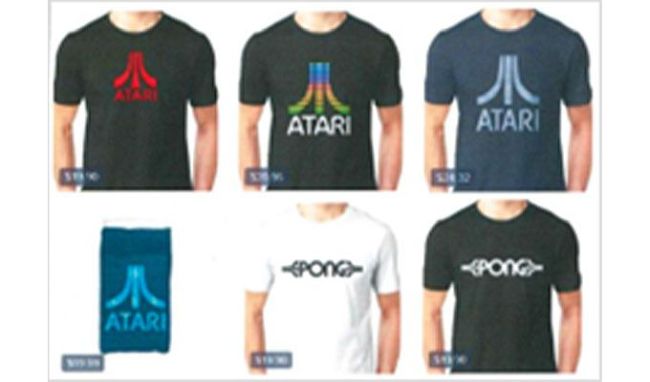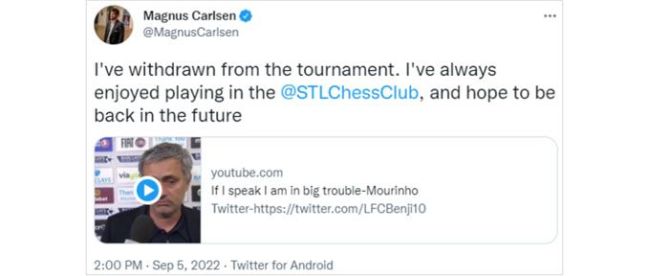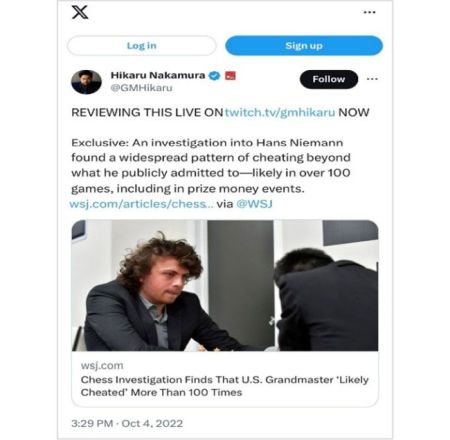Welcome to Three Point Shot, a newsletter brought to you by the Sports Law Group at Proskauer. Three Point Shot brings you the latest in sports law-related news and provides you with links to related materials. In this issue, we feature contributions from Eric Zilber, Jiyoon Kim and Danielle L. Brooks.
Your feedback, thoughts and comments on the content of any issue are encouraged and welcome. We hope you enjoy this and future issues.
Edited by Robert E. Freeman
Ninth Circuit Upholds Block of Idaho Law Excluding Transgender Women from Public School Female Sports Teams
In the latest legal battle centered around transgender athletes' participation in sports, the Ninth Circuit affirmed the district court's preliminary injunction against enforcement of Idaho's Fairness in Women's Sports Act (H.B. 500) (the "FWSA") (Hecox v. Little, No. 20-35813 (9th Cir. Aug. 17, 2023)).
As the lower court aptly synthesized: "The primary question before the Court —whether the Court should enjoin the State of Idaho (the "State") from enforcing a newly enacted law which precludes transgender female athletes from participating on women's sports — involves complex issues relating to the rights of student athletes, physiological differences between the sexes, an individual's ability to challenge the gender of other student athletes, female athlete's rights to medical privacy...and the rights of all students to have complete access to educational opportunities...available at school."
Such issues, which have been a topic of public debate in recent years, are now the subject of an ongoing constitutional challenge in federal court.
Things began in March 2020 when Idaho enacted the FWSA barring all transgender girls and women from participating in public school female sports teams at every age (i.e., primary school through college) and at every level of competition (i.e., intramural to elite teams), becoming the first state to do so. According to court papers filed by the State, the legislature passed the FWSA in an attempt to "uphold the traditional practice of sex separation in sports" and address what it perceived were issues of fairness and opportunities in female sports. In opposition, the Plaintiffs admit that the promotion of sex equality and opportunities for female athletes are important governmental objectives but contend that the FWSA is not substantially related to such objectives and that the FWSA discriminates between cisgender athletes, who may compete on athletic teams consistent with their gender identity, and transgender women athletes, who may not compete on athletic teams consistent with their gender identity.
The FWSA text mandates that "[a]thletic teams or sports designated for females, women, or girls shall not be open to students of the male sex." The FWSA also contains a "dispute" verification process whereby any individual can challenge the sex of any female student athlete (whether transgender or not) in Idaho. A "dispute" would require the female athlete to undergo an intrusive medical exam to "verify the student's biological sex." Notably, prior to the passage of H.B. 500, Idaho high school interscholastic athletic association policy allowed transgender girls in Idaho K-12 athletics to compete on girls' teams after completing one year of hormone therapy suppressing testosterone under the care of a physician for purposes of gender transition. At that time, NCAA policies offered the same option for transgender women attending member colleges and universities.
Shortly after the FWSA was signed into law, Lindsay Hecox ("Lindsay") and Jane Doe ("Jane" and collectively with Lindsay, the "Plaintiffs") filed a lawsuit seeking a declaratory judgment that the FWSA violates the Constitution, among other claims, and for a preliminary injunction blocking enforcement. Lindsay is a transgender woman who wanted to try out for the Boise State University ("BSU") women's track and cross-country teams. Jane is a cisgender woman who plays on high school varsity teams and at the relevant time feared that her sex would be disputed, due to her masculine presentation, under the FWSA.
In August 2020, an Idaho district court, applying a heightened scrutiny standard, preliminarily enjoined the FWSA on the basis that it likely violated the Equal Protection Clause of the Fourteenth Amendment and that the Plaintiffs would suffer irreparable harm if the injunction was not granted ("[T]he State has not identified a legitimate interest served by the [FWSA] that the preexisting rules in Idaho did not already address, other than an invalid interest of excluding transgender women and girls from women's sports entirely, regardless of their physiological characteristics").
On appeal, the Ninth Circuit reviewed the district court's grant of a preliminary injunction by examining three factors: (1) whether a plaintiff is likely to succeed on the merits, (2) whether a plaintiff is likely to suffer irreparable harm in the absence of preliminary relief and (3) that the balance of equities tips in the plaintiff's favor and that an injunction is in the public interest.
First, the Ninth Circuit examined the Plaintiffs' likelihood of success on the merits. For an equal protection challenge, the Fourteenth Amendment ("[n]o State shall ... deny to any person within its jurisdiction the equal protection of the laws") is primarily involved. Various levels of scrutiny apply depending on what party is involved. Here, the Ninth Circuit found that the district court did not err in concluding that heightened scrutiny applies because the FWSA "discriminates against transgender women by categorically excluding them from female sports, as well as on the basis of sex by subjecting all female athletes, but no male athletes, to invasive sex verification procedures to implement that policy." The appellate court rejected the State's argument that the FWSA does not discriminate based on transgender status because "[t]he distinction and statutory classification is based entirely on [biological] sex, not gender identity," instead ruling that the FWSA "explicitly references transgender women" and "categorically bans transgender women and girls from public school sports teams that correspond with their gender identity." The court noted that under the FWSA, sports designated for "females, women, or girls" are not open to students of the male sex, and that the methods for "verifying" the student's biological sex are restricted to "reproductive anatomy, genetic makeup, or normal endogenously produced testosterone levels." According to the court, most gender-affirming medical care for transgender females, especially minors, "will not or cannot alter the characteristics described in the only three verification methods prescribed by the [FWSA], thus effectively banning transgender females from female sports."
Heightened scrutiny requires an "exceedingly persuasive" justification for differential treatment and, as the court noted, a challenged classification must serve "important governmental objectives" and "the discriminatory means employed [must be] substantially related to the achievement of those objectives." While furthering women's equality and promoting fairness in female athletic teams is an important state interest, the court found that the FWSA's means — banning transgender women and girls from all female athletic teams and subjecting all female athletes to intrusive sex verification procedures — were not substantially related (and, in fact, undermined) the stated objectives. In particular, the Ninth Circuit distinguished this case from precedent where it was found that prohibiting high school boys from playing on girls' volleyball teams (note: there were no boys' teams) did not violate the Equal Protection Clause, rejecting the State's argument that the FWSA classifies based only on sex, not "transgender status." Further, the court found that the FWSA was overbroad by extending to pre-pubescent and hormone therapy-using athletes.
With respect to the sex dispute verification process, the Ninth Circuit agreed with the district court in finding that this "intrusive burden" on young women and girls failed heightened scrutiny: "Idaho has not offered any 'exceedingly persuasive justification' warranting the imposition of this objectively degrading and disturbing process on young women and girls." In the appellate court's view, the dispute process likely would, contrary to the FWSA's express purpose of ensuring women's opportunities in sports, discourage the participation of Idaho female students in student athletics by allowing any person to dispute their gender and then subject them to unnecessary medical testing. Moreover, the court, in finding that the FWSA did not survive heightened scrutiny, noted that the other twenty states that restricted transgender women's participation in women's sports since the passing of the FWSA did not authorize a similar verification process; the court also noted that there was very little anecdotal evidence at the time of the FWSA's passage that transgender women had displaced or were displacing cisgender women in sports, scholarships or like opportunities. Overall, the court found that the FWSA's means undermined its purported objectives and imposed an "unjustifiable burden" on all Idaho female athletes.
The court quickly dispensed with the final prongs of its preliminary injunction review, finding that the district court correctly found that irreparable harm would occur in the absence of a preliminary injunction (e.g., Lindsay would be barred from trying out for or participating in any female sports teams at BSU) and that the public interest and the balance of the equities weighed in favor of a preliminary injunction.
Following the ruling, on August 31, 2023, the State filed a petition for rehearing en banc, contending that the appellate court's "blinkered approach" conflicts with Ninth Circuit and Supreme Court law and "leaves no room to implement...legitimate policy." Thus, there is a possibility that the case may be heard by the full Ninth Circuit.
Since the FWSA's passing, more than twenty states have passed laws limiting the participation of transgender students in women's athletics. Additionally, the U.S. House of Representatives passed the Protection of Women and Girls in Sports Act of 2023 (H.R. 734) that would, among other things, recognize sex solely on the basis of a person's reproductive biology and genetics at birth, thereby banning transgender students from playing on a team consistent with their gender identity. Thus, while Idaho transgender female athletes may have been successful so far at blocking the FWSA, the debate over transgender athletes at-large is far from over.
Atari Loses Another Round in Its Trademark Infringement Spat Against Redbubble
In the December 2021 edition of Three Point Shot, we covered the intellectual property Joust between videogame studio Atari Interactive, Inc. ("Atari") and online print-on-demand company Redbubble Ltd. ("Redbubble") over the presence of unauthorized, user-uploaded designs on Redbubble's digital marketplace (Atari Interactive, Inc. v. Redbubble, Inc., No. 18-03451 (N.D. Cal. Nov. 4, 2021)).
At that time, Redbubble was able to Getaway!when the U.S. District Court for the Northern District of California granted Redbubble's summary judgment motion on contributory and vicarious copyright infringement and willful copyright and trademark infringement. The court subsequently dismissed Atari's remaining claims after a jury returned a verdict in favor of Redbubble with respect to the questions of direct copyright infringement and all forms of trademark counterfeiting and infringement. Atari filed an appeal to the Ninth Circuit in December of 2021, and we told Three Point Shot readers to stay tuned. The verdict is now in.
As a quick recap, Redbubble is an online marketplace that uses a print-on-demand model, which is central to the infringement issues at issue. Unlike traditional retailers, the company does not order or manufacture a stock of ready-to-sell inventory, nor does it create designs itself. Instead, it creates individualized items for custom orders, printing designs previously uploaded by independent artists or sellers onto generic goods like t-shirts and mugs. Furthermore, the design creators — not Redbubble — set the ultimate retail price for each item. Upon each sale, Redbubble forwards the purchase order to a third-party manufacturer or fulfiller, which then creates the final product based on the customer's specifications and ships it via pre-approved carriers; third-party artists and consumers have no direct contact. Much like responding to a DMCA takedown request, Redbubble will, from time to time, respond to notices from trademark holders about infringing listings by removing the listings at issue and otherwise take appropriate actions against repeat infringers.
On July 24, 2023, Atari's appeal went "Kaboom" after the Ninth Circuit affirmed the district court's summary judgment holding that Redbubble was not "willfully blind for purposes of Atari's contributory trademark infringement claim."(Atari Interactive, Inc. v. Redbubble, Inc., No. 21-17062 (9th Cir. July 24, 2023) (unpublished)). A contributory trademark infringement claim relies on the concept of secondary liability. As the Ninth Circuit stated, a party may be liable for contributory trademark infringement when it continues to supply its product to one whom it knows or has reason to know is engaging in trademark infringement. The court also stated that the knowledge element in this standard can be proven by demonstrating the defendant had specific knowledge of infringers or instances of infringement and willfully turned a blind eye, such as by "taking active steps to avoid acquiring knowledge"; however, without such knowledge, the court noted that a platform "need not search for infringement."
While Atari argued that Redbubble was willfully blind to specific instances of infringement of Atari's intellectual property taking place on Redbubble's marketplace (see image below), the Ninth Circuit found that Atari failed to produce evidence of Redbubble's specific knowledge. According to the Ninth Circuit, Atari instead insufficiently relied on evidence of general infringement on the website to prove its contributory infringement claim ("General knowledge of infringement on the defendant's platform — even of the plaintiff's trademarks — is not enough to show willful blindness.").

(Source: Atari's Complaint, filed June 2018)
The appeals court also noted that even if a defendant learns about specific instances of infringement, "bona fide efforts to root out infringement" could preclude a finding of liability, even if the defendant was not fully successful in stopping infringement. In this case, evidence showed that Redbubble made bona fide efforts to take down infringing listings of which it was notified. Finding no evidence that Redbubble actively avoided acquiring knowledge of infringement, the Ninth Circuit affirmed the district court's ruling in Redbubble's favor on Atari's contributory trademark infringement claim.
Atari's hit points took another blow with respect to the trial court's rulings on the direct liability claims. In its opening brief, Atari argued that the district court erroneously foreclosed the possibility that more than one party can engage in trademark use by instructing the jury to decide whether Redbubble or Redbubble's users are the true seller (and thus, the direct infringer). In Atari's view, both Redbubble and its users were "using" Atari intellectual property in an infringing manner and print-on-demand platforms can "engage in trademark use by virtue of their involvement with the sales process." However, the Ninth Circuit found no abuse of discretion by the district court in its formulation of the instruction, suggesting that the district court's instructions more than adequately covered the relevant issues, correctly stated the law, and were not misleading. Looking for a possible "Reset," on August 21, 2023 Atari filed for a petition for panel rehearing and petition for rehearing en banc. Thus, it is not game over (yet).
Atari is not the only intellectual property holder to recently suffer an adverse Ninth Circuit ruling on contributory infringement claims against Redbubble. Back in 2019, Y.Y.G.M. SA, which does business as the popular clothing manufacturer Brandy Melville ("Brandy Melville"), filed a complaint against Redbubble for claims arising from the unauthorized sale of goods bearing Brandy Melville's trademarks through Redbubble's website. In that case, a jury found Redbubble liable for, among other things, willful contributory infringement of various Brandy Melville marks (Y.Y.G.M. SA v. Redbubble, Inc., No. 19-04618 (C.D. Cal. Jury Verdict June 23, 2021)). The district court let the verdict stand, except in connection with a contributory counterfeiting claim and a contributory infringement claim related to one mark for which the court concluded Brandy Melville failed to present evidence of infringing listings. On appeal, the Ninth Circuit, in a companion decision to the Atari case, found that the district court did not apply the correct legal standard of specific knowledge and willful blindness when assessing Brandy Melville's contributory trademark infringement claims. (Y.Y.G.M. SA v. Redbubble, Inc., No. 21-56150 (9th Cir. July 24, 2023)), again stating that "general knowledge of infringement on the defendant's platform, even of the plaintiff's trademarks, is not enough to show willful blindness" and that Redbubble did not have a duty to look for infringement "until it gains the specific knowledge necessary to trigger liability." As a result, while Brandy Melville won reversal of some of the lower court's adverse rulings, the Ninth Circuit vacated and remanded for reconsideration the district court's ruling on Redbubble's potential liability for contributory infringement. We'll have to wait and see if Brandy Melville eventually achieves a higher score than Atari did against Redbubble. Stay tuned.
Exposed King Regains His Throne in Grandmaster Draw
In September 2022, Magnus Carlsen ("Carlsen" or "Defendant"), the chess Grandmaster and five-time World Chess Champion, and the highest-ranked chess player in history, went head-to-head with then 19-year-old chess Grandmaster Hans Moke Niemann ("Niemann" or "Plaintiff") during round three at the Sinquefield Cup chess tournament (the "Tournament") in St. Louis, Missouri. To the surprise of many, Niemann defeated the World Champion, and Carlsen withdrew from the Tournament altogether, which marked the beginning of a scandal in the world of chess.
One month prior to the Tournament, Play Magnus AS d/b/a Play Magnus Group ("Play Magnus" or "Defendant"), Carlsen's online recreational chess platform that is "the second most dominant commercial enterprise in chess", and Chess.com LLC ("Chess.com" or "Defendant"), the world's largest online recreational chess platform, announced their plan to merge by the end of 2022 (the "Merger"). That Niemann did not welcome news of the Merger became clear only after a series of accusations levied against Niemann emerged following Carlsen's Tournament defeat, which accusations prompted a round of litigation and counterattacks that recently ended in a resolution in late August 2023.
More specifically, Niemann's disapproval of the Merger became heightened after Carlsen's withdrawal and posting of a mysterious tweet that hinted Niemann may not have been playing fairly.

Carlsen's veiled accusation apparently stemmed from Carlsen's "sense" that Niemann was seemingly unconcentrated and too at ease during their match to honestly outplay him, something that Carlsen had thought only a few players could reasonably do.
Days later, to deflect and defend himself, Niemann admitted to cheating in some matches operated by Chess.com when he was 12- and 16-years-old ("a childish mistake," he said). He, however, stood firm in denying ever cheating in any "over-the-board" games (i.e., face-to-face matches using physical chess pieces) or using unfair tactics at the Tournament. And although the Tournament's Chief Arbiter released an official statement in the Tournament post mortem suggesting that there was "no indication that any player ha[d] been playing unfairly in the 2022 Sinquefield Cup", Niemann's admission of prior cheating only fueled the controversy, which grew even hotter after Carlsen again resigned from a match against Niemann a couple weeks later at the Julius Baer Generation Cup after playing for only a few minutes.
Niemann's disapproval of the Merger grew exponentially after chess Grandmaster and Chess.com streaming partner Hikaru Nakamura ("Nakamura" or "Defendant") spoke to his millions of social media followers about the scandal and allegedly "engaged in an all-out blitz of defamatory accusations to further confirm that Carlsen accused Niemann of cheating..." and also retweeted a Wall Street Journal story about a Chess.com report that found that Niemann's alleged cheating was more widespread than Niemann had admitted to.

Such allegations and controversy left many in the chess community feeling uneasy and eventually led Chess.com to deliver a fork; it banned Niemann from playing on its site and prohibited him from participating in its largest tournament, the Global Chess Championship, which Niemann had previously qualified for and that had a top prize of $200,000.
Feeling himself in check, on October 20, 2022, Niemann filed a lawsuit in Missouri district court against Carlsen, Play Magnus, Chess.com, and others (collectively, the "Defendants"). Niemann alleged that the Defendants had violated not only state laws by allegedly conspiring against him and defaming him but also federal antitrust laws. Niemann's complaint (which was later amended) reasoned that because each of the Defendants publicly alleged, or accepted as fact, that he had cheated at the Tournament without conclusive proof, they must have colluded with one another for the purpose of trying to get him "blacklisted" from top-tier professional tournaments. Moreover, Niemann's complaint purported that each of the Defendants were guilty of slander and/or libel and, in the case of Chess.com, also tortious interference with contract, as it prohibited him from playing in the Global Chess Championship.
With respect to his federal law antitrust claims, Niemann claimed that Defendants violated § 1 of the Sherman Act by conspiring to refuse to deal with him, including by Chess.com banning him from its platform and by Carlsen refusing to play against him (i.e., what Niemann claimed was an unlawful group boycott against him participating in what he terms the "Competitive Chess Market"), and the Defendants violated § 2 of the Sherman Act by attempting to monopolize such market (i.e., Niemann argued that this alleged attempt was carried out by Chess.com's acquisition of Play Magnus and by Chess.com purportedly using its power to try to control which chess players participate in such market). Niemann additionally explained that Defendants' concerted attempt to blacklist him from that market further constituted an improper and unreasonable restraint of trade, in violation of federal antitrust laws", as it left no "'meaningful alternative for engaging or promoting oneself in competitive chess...because [the consolidated company] collectively dominate[s] nearly every major online chess website.'"
In response to Niemann's complaint, Carlsen filed a motion to dismiss, labelling the claims "a wholly implausible conspiracy to defame and boycott Niemann" and arguing that Niemann's antitrust claims were merely an "attempt to make a federal case out of defective state-law defamation claims." Carlsen and the other Defendants moved to dismiss Niemann's state law claims, relying on Connecticut's anti-Strategic Lawsuits Against Public Participation ("anti-SLAPP") law, which allows litigants to seek early dismissal of claims based on the party's exercise of free speech rights related to matters of public concern or, alternatively, arguing that Niemann failed to state a plausible claim for relief for such claims because, among other things, Carlsen's withdrawal from the Tournament or "expressi[on] [of] his opinion that Niemann cheated at the Sinquefield Cup" were not actionable. Moreover, each Defendant moved to dismiss Niemann's federal antitrust law claims, contending that Niemann "failed to plausibly allege an antitrust injury or other required elements of a federal antitrust claim," including failing to plead a well-defined market. The additional Defendants moved to dismiss Niemann's state and federal law claims for lack of personal jurisdiction over them, and Chess.com moved to dismiss Niemann's breach of contract claim for, among other reasons, failure to state a proper claim or, alternatively, because Niemann was subject to binding arbitration.
Pushing the whole affair closer toward the endgame, on June 27, 2023, the district court dismissed Plaintiff's federal antitrust claims, with prejudice, and declined to exercise supplemental jurisdiction over the remaining state defamation and other claims, thus terminating the case. (Niemann v. Carlsen, No. 22-01110 (E.D. Mo. June 27, 2023)). The Court noted that an action is only unlawful under § 1 and § 2 of the Sherman Act when the plaintiff's injuries are connected to a harm to competition in the market and it threatens actual monopolization. Examining Niemann's antitrust claims, the Court found no antitrust injury. As the court explained, an antirust injury requires that the plaintiff "be the target of the anticompetitive activity, not one who has merely suffered indirect, secondary, or remote injury." It stated that Niemann's alleged injuries were not connected to a harm to competition in the "Competitive Chess Market," as Niemann does not, and cannot, even compete in such market since he does not operate a professional chess tournament or an online recreational chess platform, and the injuries Niemann alleges to have sustained —reputational harm and loss of winnings, among others —were not the result of monopolization. As a result, the Court effectively concluded that Niemann failed to plausibly lodge an antitrust injury.
With respect to Niemann's remaining state claims, the Court declined to exercise supplemental jurisdiction over them, and instead, dismissed the state law claims without prejudice, leaving Niemann the option to refile in state court. In response, Niemann filed an appeal to the Eighth Circuit.
In late August, it appears the tension between the parties subsided and the civility of chess returned when the parties settled the dispute. Carlsen, Niemann, Chess.com and the other Defendants finally came to a draw: Niemann agreed to drop his appeal and not re-file his remaining state law claims in state court in exchange for being reinstated on Chess.com and permitted to play in its online games and tournaments, while Carlsen acknowledged Chess.com's report, stating that he understands "that there is no determinative evidence that Niemann cheated in his game against [him] in the Sinquefield Cup" and agreed to sit down and play against Niemann in future events if, and when, the two are paired. Can this really be the resolution to the long-running scandal that roiled the chess world? Stay tuned to see if one player has a subsequent silent move or if the dispute will truly be left in a dead position.
The content of this article is intended to provide a general guide to the subject matter. Specialist advice should be sought about your specific circumstances.

















